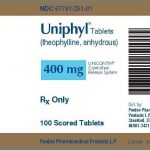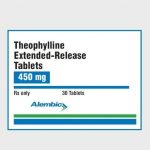
Contents
- 1 Fastest Way to Get Rid of Genital Warts?
- 1.0.1 Symptoms of Genital Warts
- 1.0.2 Causes of Genital Warts
- 1.0.3 Who Can Get Genital Warts?
- 1.0.4 Diagnosis for Genital Warts
- 1.0.5 Treatments for Genital Warts
- 1.0.6 Possible Complications and Side Effects of Genital Warts Treatments
- 1.0.7 Can You Test Yourself for STDs?
- 1.0.8 When Should You Test Yourself for STDs?
- 1.0.9 How Do Home Testing Kits Work?
- 1.0.10 What to Do If the Results Are Positive
Fastest Way to Get Rid of Genital Warts?
Genital warts are caused by the human papillomavirus (HPV) and are one of the most common sexually transmitted diseases (STDs). While there is a vaccine to prevent infection, there is no cure for HPV. The fastest ways to remove warts are through surgery, freezing with liquid nitrogen, or using electric current or laser treatments.
Approximately 79 million Americans are infected with the virus that causes genital warts, making it one of the most common STDs. Nearly one in 100 sexually active adults in the United States has genital warts.
Genital warts are caused by HPV, which has many strains that can cause contagious warts and some that can cause cancer. To get rid of warts, your doctor needs to remove them surgically. It’s important to know the signs of genital warts and HPV for prompt treatment and to prevent spreading the virus.
Symptoms of Genital Warts
Genital warts are growths on your genitalia caused by HPV. Symptoms are generally similar for all people, but may vary slightly depending on anatomy. Warts can appear on the vulva, vaginal walls, perineum, anus or anal canal, cervix, or mouth in people with vulvas; and on the tip or shaft of the penis, scrotum, anus, or mouth in people with penises. Non-anatomically specific symptoms include cauliflower-shaped growths, itching or discomfort in the genitals, bleeding during intercourse, and small pink, flesh-colored, or swollen brown areas.
Causes of Genital Warts
External genital warts are caused by HPV. About 40 of the over 120 HPV subtypes can infect the anogenital tract. Warts caused by these subtypes can be flat, dome-shaped, cauliflower-shaped, or pedunculated.
Who Can Get Genital Warts?
Anyone who has sexual contact with a person infected with HPV can get genital warts. HPV transmits when your skin contacts the infected area. The virus is contagious and can be present on the skin of an infected person, transferring through touch or sexual contact. Once the virus enters your skin, it combines with your skin cells and begins to multiply, causing warts to form. The virus can then spread to other areas of your skin or other people, even without visible symptoms.
Diagnosis for Genital Warts
Genital warts are generally not harmful, but it’s important to see a doctor if you notice any symptoms to prevent transmission. Some HPV strains can cause cancer, so early treatment is essential. Your doctor will ask about your general health and sexual activity, perform a physical examination, and conduct tests including the Papanicolaou (Pap) smear and colposcopy to look for warts. Samples may be taken for a biopsy and other tests.
Treatments for Genital Warts
There is no cure for HPV, but a vaccine can help prevent infection. Treatment for genital warts involves removing them through surgery, freezing with liquid nitrogen, or using electric current or laser treatments.
Possible Complications and Side Effects of Genital Warts Treatments
Surgery to remove warts carries the risk of infection, but it is generally a simple procedure with minimal side effects. Some discomfort and pain may be experienced, especially in sensitive areas. HPV can cause cancer, including cervical, vulvar, penile, anal, and head and neck cancer.
Can You Test Yourself for STDs?
If you prefer not to visit a doctor or clinic, you can test for STDs at home using various at-home testing kits. These kits can detect chlamydia, hepatitis C, HIV, trichomoniasis, gonorrhea, syphilis, and herpes simplex virus type 2. Self-testing kits allow for regular testing without disclosing personal information to health clinics.
When Should You Test Yourself for STDs?
If you are sexually active and have had unprotected sex, it is recommended to get tested for STDs. Both partners should get tested if one suspects they may have an STI. People engaged in high-risk sexual behaviors are at a higher risk of contracting an STI, which can lead to complications and increase the risk of additional infections, malignancies, and infertility.
How Do Home Testing Kits Work?
Most self-testing kits have an expiration date, so collected samples must be sent to a lab promptly. Samples taken through finger prick, urine collection, or swab can be sent for testing for various STIs. Waiting periods between sex and collecting samples are important, and any symptoms should be taken into account. Proper collection and timely submission of samples are crucial to avoid false-negative results.
What to Do If the Results Are Positive
If you test positive for any STIs, it’s important to see a doctor for further evaluation and treatment. Your doctor will discuss your symptoms, medical history, and may perform a physical examination to determine the extent of the disease and identify any underlying causes. Sexual activity should be avoided until the infection is treated.
By clicking Submit, I agree to the MedicineNet’s Terms & Conditions & Privacy Policy and understand that I may opt out of MedicineNet’s subscriptions at any time.
Centers for Disease Control and Prevention: "Human Papillomavirus (HPV)." Harvard Health Publishing: "Human Papillomavirus (HPV)." Harvard Health Publishing: "Genital Warts." Moffitt Cancer Center: "Infographic: HPV Vaccine is Key to Preventing Certain Cancers." Office on Women’s Health: "Genital Warts." Office on Women’s Health: "Human papillomavirus." Sense: "Testing at Home." One Medical: "STD Screening: The Basics."


